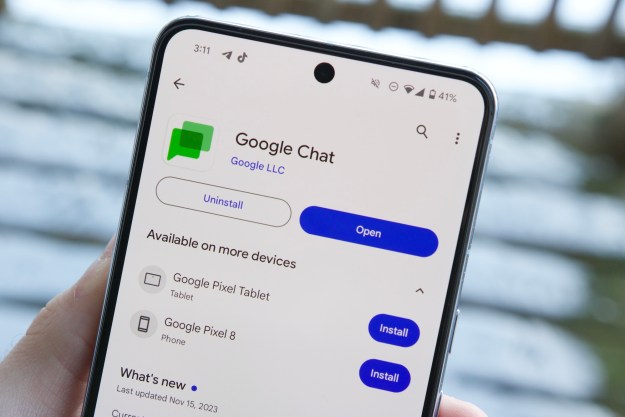Recently, it was reported that Google is set to significantly change how it works with Android manufacturers, at least in Europe. Rather than having the ability to load Google’s apps and services onto their Android phones for free, the company will begin to charge device makers that want to use its main Google apps. According to documents obtained by The Verge, that fee apparently will be as much as $40 per device in order to install the “Google Mobile Services” suite of apps.
The report goes on to mention that the new fees will vary based on the type of device and on the country, and will go into effect on devices activated on or after February 1, 2019. The pricing documents show that in Germany, the U.K., Sweden, Norway, and the Netherlands, a device that has a pixel density that’s higher than 500 ppi would pay the $40 fee in order to license the suite of apps, while devices with 400 to 500 ppi pay $20. Meanwhile, any device that’s under 400 ppi would be charged $10 and lower-end phones would cost as low as $2.50 per device.
The Verge notes that it’s unclear why pixel density effects pricing, but this could be based on the fact that higher pixel density is normally associated with more highly priced devices. Tablets, on the other hand, could have a different set of pricing across countries of up to $20 per device. A source close to the matter claims that while manufacturers might be able to negotiate separate deals, the prices wouldn’t vary that much between them.
Manufacturers who don’t pre-install Chrome, however, might lose out on search revenue tied to the browser. With the new agreement, Google will only pay search-revenue sharing fees if Chrome is pre-installed and specifically placed on the home screen dock.
The move comes as a response to a July ruling in the European Union which ordered Google to stop “illegally tying” Google Chrome and some search-related apps to Android. Companies will now be able to license Chrome, the Play Store, and other Google mobile apps rather than being required to bundle all of them together. Companies will also be able to license Google apps for forked versions of Android, which may make for more phones with alternative versions of
Traditionally, Google hasn’t charged for the use of these apps because of how much money it makes from search and Chrome. Being required to stop tying them together, though, changes how much money Google could potentially make from them.
“Since the pre-installation of Google Search and Chrome together with our other apps helped us fund the development and free distribution of Android, we will introduce a new paid licensing agreement for smartphones and tablets shipped into the [European Economic Area],”
It’s important to note that Android as a whole will still be free — it’s just that now those apps that we most often associate with
Ultimately, Android device manufacturers may still be tied to Google. They will likely still need to license the use of the Google Play Store, where users can download all of the Google apps that otherwise would have come with their phone. Not only that, but it’s possible Google will be able to continue bundling all of its apps together in the future — the company is appealing the European Commission’s decision. Still, in the meantime, it has to comply with the decision, and as such the changes will go into effect starting on October 29.
Updated October 19: Documents indicate Google app suite may reportedly cost $40 per phone under EU Android deal.
Editors' Recommendations
- Google just released the first Android 15 beta. Here’s what’s new
- The 1Password Android app just got a huge upgrade
- Google just announced Android 15. Here’s everything that’s new
- Google is expanding Fast Pair, casting to more devices
- Apple may have already killed Android’s newest iMessage app, Beeper Mini

